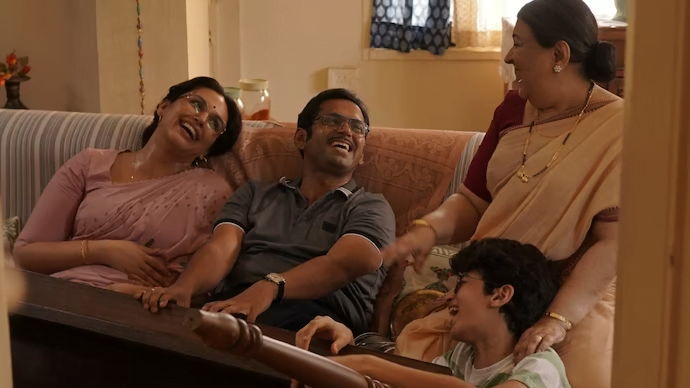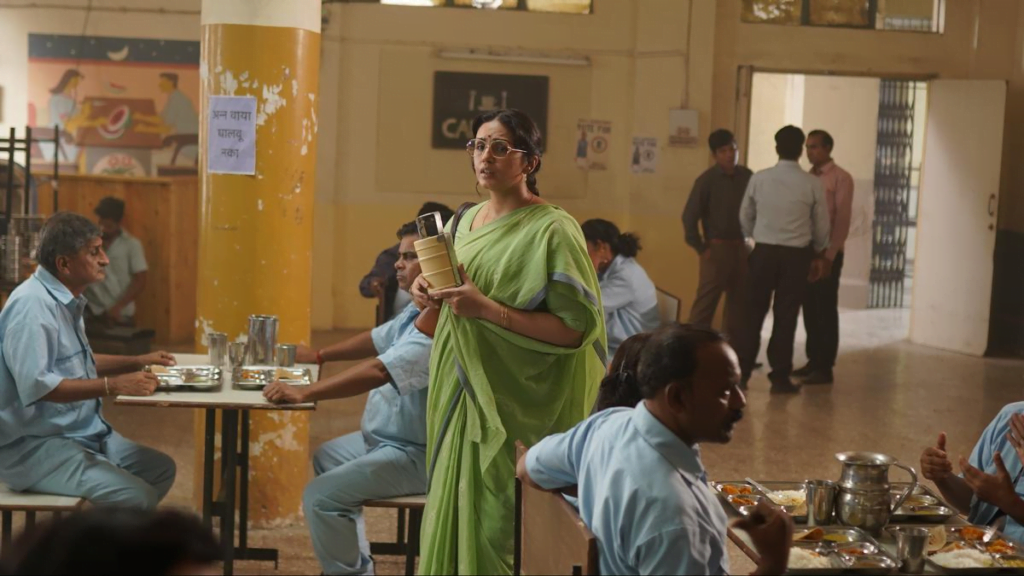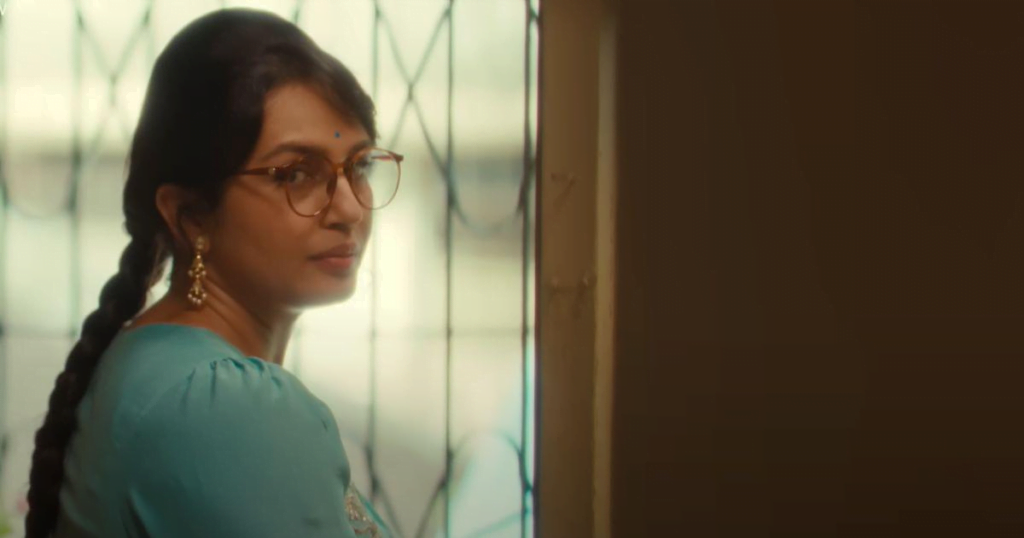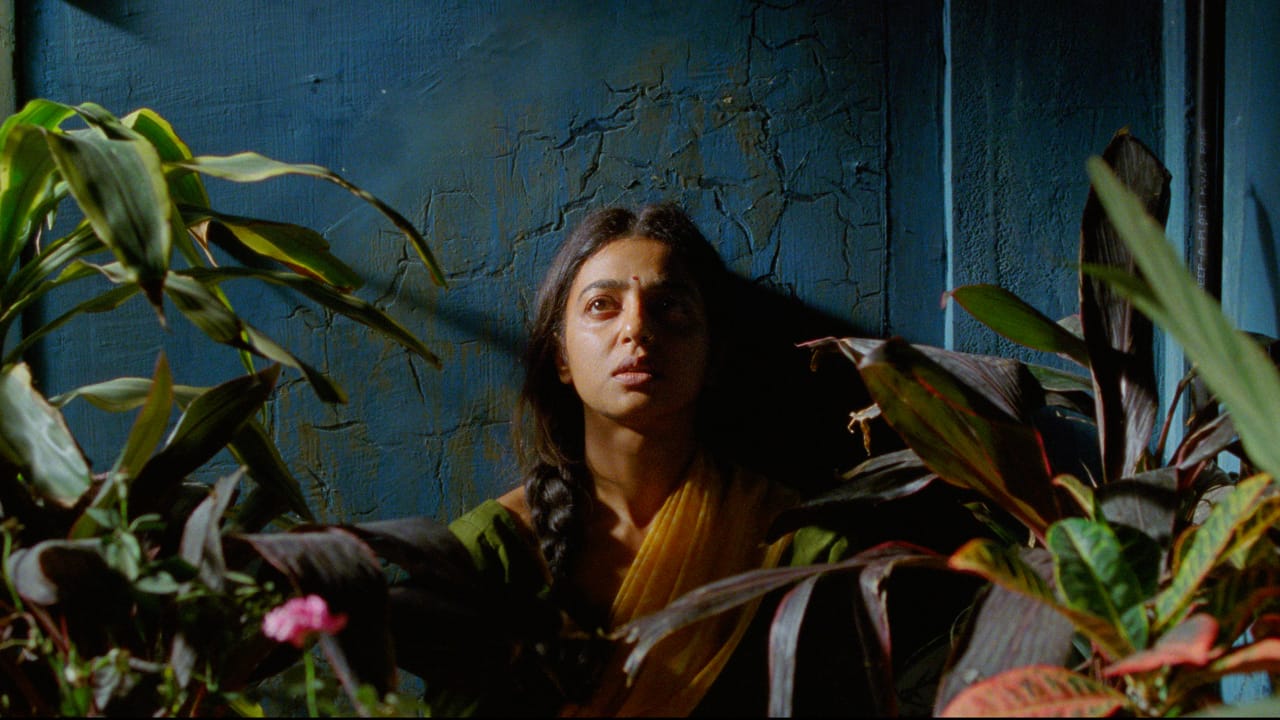In 2007, when chef Tarla Dalal was awarded the prestigious Padma Shri by the Government of India, she made history as the only Indian chef to have been awarded the title. Hers was a truly resounding win; by this time, she had published several cookbooks that had become a staple in households across the country, and her recipes had been consumed by an estimated 120 million Indian families.
While cooking in the Indian household was a task relegated to women, and the food itself a vector through which insidious patriarchal dynamics operated and informed the nuances of the power dichotomy between men and women, professional cooking was- and still is- a traditionally male-dominated industry, as ironic as that may be.
Against such a landscape, Dalal’s rise to fame would certainly make for an engaging and enlightening examination, yet perhaps feeding her complex life and tribulations into the horrifying Bollywood biopic machine to churn out an emotionless, formulaic script wasn’t the best way to go about it.
Tarla, whose role is essayed by the brilliant Huma Qureshi, is reduced onscreen to a one-dimensional character; writers of the biopic treat her as nothing more than a spigot for lukewarm lessons for an audience they presume to be unaware and poorly informed. But even aside from its improper handling of the story of the wonderful Tarla Dalal, the film remains riddled with awkward dialogue, boring cinematography and a mostly forgettable soundtrack, all elements which combine to spawn yet another failed creation of the Bollywood biopic fever.

In a scene that is assumed to be comedic in the film, Tarla gasps dramatically as she finds her husband, Nalin (essayed by the charismatic Sharib Hashmi) consuming non-vegetarian food. The murgh musallam comes to be regularly referenced throughout the film, often following needlessly theatric and utterly soulless shots of colourful spices and elegant crockery, in the form of its vegetarian counterpart that Tarla devises, which ultimately becomes one of her signature dishes.
Indeed, the obsession that Indians have with vegetarian food is often reflective of casteist ideals of maintaining ‘purity,’ rather than being borne out of any genuine concern for animal rights. At a time when food itself becomes increasingly political and communal, it is a pity that the makers of the film never attempt to engage with Tarla’s beliefs and her psyche critically.
It is not just the murgh musallam that suffers this fate; Tarla creates dozens of vegetarian alternatives to non-vegetarian dishes for people to consume. In its treatment of Tarla’s perception of non-vegetarian food as either comedic or as fuel for her own passion for cooking, the film, which takes on itself to otherwise deliver several ham-fisted lessons in the same patronising and reductive way as Instagram infographics, misses a chance to critically examine the ways in which food in India functions as an operator of caste privilege.

Indeed, the obsession that Indians have with vegetarian food is often reflective of casteist ideals of maintaining ‘purity,’ rather than being borne out of any genuine concern for animal rights. At a time when food itself becomes increasingly political and communal, it is a pity that the makers of the film never attempt to engage with Tarla’s beliefs and her psyche critically.
This is not the only example where Tarla is treated less as a complex being with her own views and thoughts and more as a vehicle for on-the-nose moral lessons. Much of Tarla’s own inner struggles, such as reconciling her passion for cooking with her own internally socialised biases with regard to women’s ‘duties,’ in the house, are picked up and dropped at a disconcertingly fast pace.
No adequate attention or examination is afforded to Tarla’s complex life; in their treatment of the wonderful chef as a social media post wherein each slide corresponds to all the essential details of her life without any critical engagement or emotional touches, the makers of the film end up churning out a soulless piece of art where Tarla’s life is less an actual life she has lived and more a checklist of narrative points the makers wanted to cross at all costs.
It is grotesque to turn real-life people into capitalist pawns in such a debasing manner; to only respect their stories insofar as they can provide fodder for thought and learning to the elites.
It is concerning that women in quintessential Indian biopics are never afforded the same compelling examination and portrayal of their lives that men do. Indeed, even morally bankrupt men get biopics made about their lives, yet there is an unsaid belief that any biopic featuring people from marginalised backgrounds must be first and foremost an opportunity to teach. It is grotesque to turn real-life people into capitalist pawns in such a debasing manner; to only respect their stories insofar as they can provide fodder for thought and learning to the elites.

It is also important to examine the biopic industry that plagues the film scene in India currently. Widely criticised though they may be, Bollywood continues to exploit lives by dramatising them to turn a profit in their biopics. Worse, in their attempts to break out of stereotypical and downright misogynistic portrayals of women in their films, creators often tend to completely erase the autonomy of the subjects whose lives they are examining.
Instead of taking a nuanced look at the lives of such women, we instead end up with films that only care about the women’s lives insofar as they can extract an inspirational lesson from them, however contrived or ruthless this may be. In so doing, Bollywood not only relinquishes the opportunity to honour some extremely talented and radical women whose lives it cannot translate into a cheaply written and poorly made biopic for the masses to consume but also disrespects the women they do choose to portray by reducing them to the role of a role model for the Indian audience.
In a catalytic scene for the rest of the film, Tarla teaches a room of students cooking and comments, ‘If the kitchen is a jail, let cooking be the key that sets you free.’ Here too, the film fails to examine her statement. It never asks itself why so many women are attending Tarla’s classes- are they truly united in their unequivocal love for cooking, or are they similar to the woman Tarla taught earlier, whose revamped cooking skills helped her snag a rishta?
Is it truly ‘passion,’ if the students are only concerned about cooking due to the socialised beliefs hammered into women and codified into the dynamics between men and women since birth by brutal and violent patriarchy? Alas, the film does not concern itself with such intensive thought exercises.
Perhaps the only saving grace of the film is its soundtrack and its leads. A song montage in the film, for instance, depicts Tarla and Nalin’s marriage over the years in a memorable scene. If the film’s dialogue is ham-fisted, awkward and often poorly written, the charm and brilliant performances of both Huma and Sharib somehow manage to make it work.

Although their relationship lacks any dramatic urgency to keep the viewers engaged, the emotion and intimacy both actors lend to their roles infuses the film with life and emotion, however minuscule they may be.
In the end, Tarla fails to sate the appetite. It is a thoroughly outdated recipe for those viewers who are passionate about Tarla not just as a chef, but also as a woman, as a teacher, as an author, and as part of a family.
Without a nuanced depiction of her life, the biopic only serves to cater to an audience used to being spoon-fed lessons in morality through dull narratives. In other words, Tarla is yet another addition to the unappetising menu Bollywood presents in the form of its biopics.
About the author(s)
Mayank (he/him) is an 18-year-old student hailing from Delhi. He is particularly interested in offering cultural and literary critique through the lens of feminist and queer studies. In his free time, Mayank enjoys reading theory and is known to appreciate pictures of pet cats.







haven’t watched the film but i’m obsessed with this review—i love huma but from what i’m reading, it looks like she wasn’t enough to save the film and i definitely will not be watching. also, im not sure how far discussing autonomy or its erasure can take us, especially in light of your section on the motivations of each of the women who attended her classes—trying to tease out autonomy in the face, for example, “the socialised beliefs hammered into women and codified into the dynamics between men and women since birth,” is certainly a slippery slope. regardless, came for the nuanced perspective (which i had no trouble finding), stayed for the fun culinary puns!